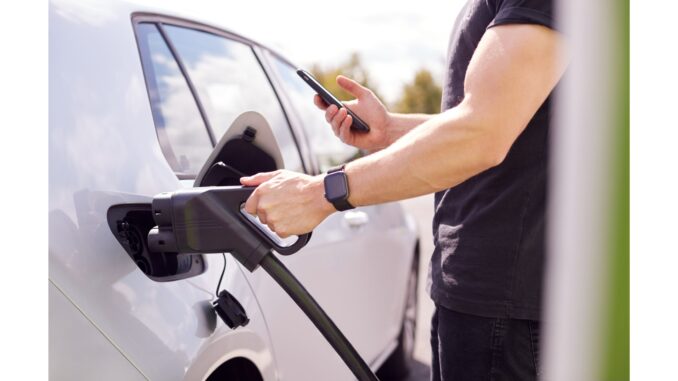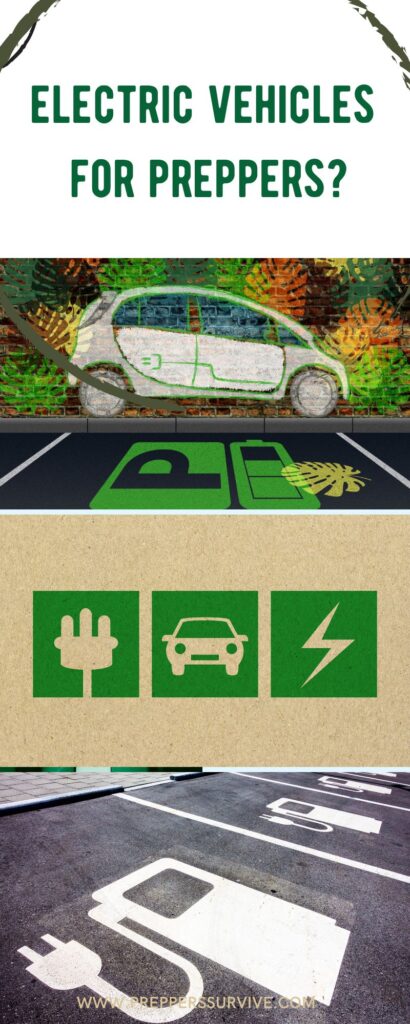
It’s no secret that the automotive industry is experiencing a significant disruption as more countries are increasingly concerned about the climate crisis. Some governments have even incentivized consumers to purchase electric vehicles. Modern EVs are sleek and safe, many have over 300 miles of range and they’re efficient modes of transportation. California passed a law that by 2035, auto dealers can only sell vehicles that run on electricity or hydrogen. So is an electric vehicle (EVs) a good idea for preppers?
As someone who lives a survivalist lifestyle, you may wonder if buying an EV is a good investment. The car you own plays an essential role in bringing you from one place to another, especially in an SHTF scenario. Continue reading to learn more about electric vehicles and if they’re a good choice for you.
The Increasing Popularity of EVs
While the first EVs emerged in the 19th century, they did not gain traction until the early 2000s. Tesla sold its first electric vehicle — the Tesla Roadster — in 2008 and is now considered the market leader.
However, many other vehicle manufacturers are entering the EV space to compete. Brands like Ford, Toyota, Chevrolet, Honda, Nissan and others added various EV models into their product lineups to appeal to sustainability-minded consumers.
Total EV sales — including fully electric and hybrid models — hit a record 6.6 million in 2021. People bought more electric cars last year each week than in 2012. The EV market is growing exponentially, with no signs of slowing down. In the first three quarters of 2022, EV registrations increased by 60% even though the total number of new car registrations was down by 18%, according to a report from Auto News.
A Bloomberg report found the U.S. is the latest to hit a tipping point in adoption rates, with 5% of all cars powered only by electricity. Once a new technology hits a 5% adoption rate, sales tend to accelerate in the following years. By 2025, electric vehicles could make up a quarter of car sales.
The Role of Transportation in a Prepper Lifestyle
There are various modes of transportation available to most people at any given time. Whether it’s a car, bicycle or public transport, it’s pretty simple for people in cities or suburbs to get from one place to another. On the other hand, folks in rural communities or those living in remote locations often rely on personal vehicles.
Because there are so many ways to get around, people take the ease and convenience of modern transportation for granted. What happens when an SHTF scenario happens? How would someone escape danger without a vehicle?
Depending on the circumstances, public transportation systems might shut down or fail to work correctly. Therefore, the importance of having reliable transportation — such as an EV — cannot be understated.
Is an Electric Vehicle a Good Idea for Preppers?
Preppers might want to buy an EV because they’re ideal vehicles for off-grid living, allowing you to increase your self-reliance. Gas fuel is hard to store but it is possible to charge an EV using an electric generator or solar panels. Additionally, some EV models are suitable for off-roading, such as the Rivian R1T or the Ford F-150 Lightning. In an ideal scenario, you’d be able to escape dangerous world events, natural disasters or apocalyptic situations because you can drive your EV on rough terrain.
Advantages and Disadvantages of EVs for Preppers
As products enter the market and become increasingly mainstream, consumers will often research the advantages and disadvantages of those products to determine if they’re worth the initial investment.
Discover some of the primary advantages and disadvantages of EVs for preppers below.
Advantages
- Electric cars emit minimal noise, so you can keep a low profile in public.
- You can charge an EV with a solar power generator, meaning you’ll always have a source of power when the sun is out, which is helpful if the main power grid fails.
- Electric vehicles are typically less expensive to maintain than gas-powered ones.
- The federal government’s Bipartisan Infrastructure Law includes a $7.5 billion investment to build more EV charging stations around the country.
- Some electric cars — such as the Mustang Mach-E electric SUV — offer a mobile Wi-Fi hotspot for an accessible internet connection.
- You save time because you can avoid filling up at traditional gas stations, which also saves you money due to rising gas prices.
- EVs are as — if not more — safe as standard vehicles with an internal combustion engine.
- A bug-out electric vehicle is environmentally friendly, which could be important if new anti-emission laws emerge.
- Specific EV models — mostly electric SUVs — have plenty of cargo space to store your survival essentials.
- Most electric cars do not have a pre-installed roof rack or cargo carrier, but you can install a compatible roof rack to add even more storage space.
Disadvantages
- It often takes longer to charge your EV than it does to refuel a gas-powered car.
- You may find it challenging to locate a charging station during a bug-out scenario.
- If your escape plan involves traveling far distances, the range of your electric vehicle could be lower than a traditional car.
- Extreme temperatures can reduce an EV’s range.
- Electric cars are typically more efficient when driven in city conditions than on highways. Drivers stop more frequently in cities, maximizing the benefits of regenerative braking and highway travel requires more energy from an EV.
- Replacing the battery is expensive.
- Lithium and cobalt in electric vehicle batteries negatively impact the environment and some consider lithium mining a violation of human rights.
- Because EVs on the market are still relatively new, they have high upfront costs. The average price of an electric vehicle is around $66,000, according to a Kelley Blue Book report.
- If you add optional features to your EV, it may be more expensive.
Understanding the pros and cons of electric cars will help you make an informed purchase decision.
Are EVs Suitable for Preppers?
Every prepper is different and practices survivalism in unique ways. Some preppers only focus on stockpiling food, water and medical supplies, whereas others build underground shelters to live in when SHTF.
One could argue the drawbacks of electric-vehicle ownership are not worth the investment. In contrast, someone else could say the advantages outweigh the disadvantages. Ultimately, you’ll have to decide if buying an EV suits your needs and wants.
Here are a few questions you can ask yourself if you need help deciding if an electric car is right for you and the members of your household:
- How often do I travel by car?
- Where is the closest charging station?
- Are there enough charging stations on my escape route if SHTF?
- Can I afford to pay for an EV?
- Will an electric vehicle fit all of my essential survival items and equipment?
- Can I attach a roof rack or a trailer to the EV?
- Could the temperature in my location impact an electric car’s range?
Suppose you want to buy an EV to travel long distances. In that case, you might want to buy a plug-in hybrid vehicle (PHEVs) rather than a fully electric vehicle. PHEVs store enough electricity to reduce their fuel usage under typical driving conditions.
Preppers — Consider Bug-Out EVs Over Gas-Powered Cars
Because electric vehicles are not quite mainstream, it’s challenging to know whether an electric vehicle is a good idea for preppers or the perfect bug-out vehicle. However — based on current technology and research — there’s no evidence to suggest an EV is a bad mode of transportation for preppers. Your decision to buy one will come down to your specific circumstances.
A major aspect of survivalism is to prepare for TEOTWAWKI — the end of the world as we know it — which includes finding a viable method of transportation. Although electric cars offer some potential benefits over gas-powered ones in an SHTF scenario, the decision to buy one remains up to you.
Thanks for visiting Preppers Survive. Before you leave subscribe to our newsletter. If you enjoyed this article, is an electric vehicle a good idea for preppers, please share it on your favorite social media.



Enjoyed the well written and informative article, thanks
For me, EV are more prone to EMP, and mechanical vehicles have more spare parts and easy to fix…. for now ..
the safest thing is to have a velomobile..not a lot of questions, not a lot of thoughts.. Easy to overcome…